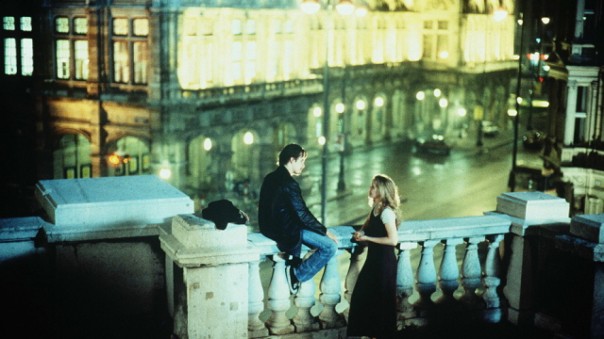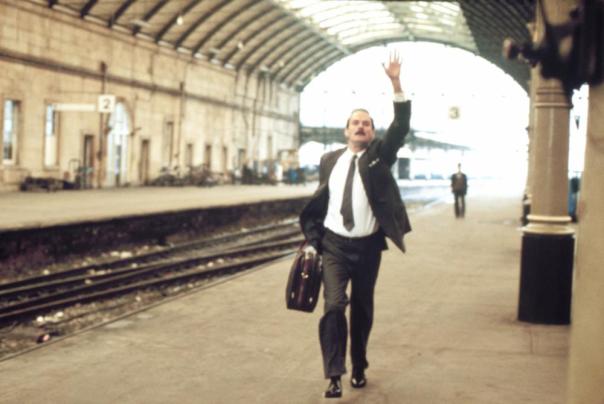
Film and television is essentially a collection of puppet shows. An unseen visionary controls and manipulates their subjects to create a series of events. Their subjects are humans, whether actors or ordinary people living out their lives on reality TV. Both independently co-exist in the world of pop culture, but The Truman Show is about both: actors acting in a fantasy world and an ordinary person going about their day to day reality, all with a director pulling the strings out of sight.
The title refers to a always on air reality show following Jim Carrey’s Truman Burbank, who’s spent his whole life oblivious to the fact he is being televised, everyone around him are paid actors and that his hometown is actually a set inside a massive dome. This average Joe is actually a megastar in the real world as his routines are captured 24/7 for everyone to see from their screens.
His whole world is being controlled and planned intensely ahead of him, the same people pass him every morning, his wife will occasionally promote products to the audience Truman isn’t aware of, and after many years, his thought to be dead “father” suddenly re-appears. Like every reality show, it isn’t truly real.
The film is about Truman discovering that his existence has been manufactured from the beginning, as he desperately wants to see the rest of the world as his world does everything in it’s power to prevent him from leaving. In a sense, he wants to leave the movie we’re watching too, but the powers behind it won’t let him.
It’s a fascinating narrative to see unfold, with an impressively restrained Jim Carrey (see also Eternal Sunshine of the Spotless Mind) pulling you into both the humour and the twisted nature of the predicament Truman is in. But what really makes this movie fascinating to me is how it’s both about this fictional work of media as well as all media. Many fictional characters who lead mundane existences are hugely popular in the real world, they just don’t know it. When being interviewed, the director of the show says the defining line of the film: “We accept the reality of the world with which we are presented”. That’s true for both the consumer (us) and the characters within fictional worlds. But in the end, it’s all an illusion, and unlike most fictional characters, Truman begins to see through it.
Another interesting thing to consider is how we are as guilty as those in the film who are watching the show: we too, are spying into Truman’s world. In many ways, this is the cinematic equivalent of Metal Gear Solid 2, a game which makes you responsible for puppeteering the main character through these controlled scenarios like the ulterior forces within the story.
Both works do a great job of breaking the illusion of the art itself. No matter how invested we get, deep down it’s all an act, and The Truman Show actively sets out to expose that. At the end, Truman hits the edge of the set, discovering this world has been manufactured before he finds the doorway into reality and leaves the illusion behind for good. What really drives this idea of the bridge between fantasy and reality within this story home is that we don’t see what happens next once he sets foot into the real world, as the real world lies beyond our screens, without a guiding force in control of everything around us. Truman hasn’t just exited the set of the show, he’s freed himself from the film too.








